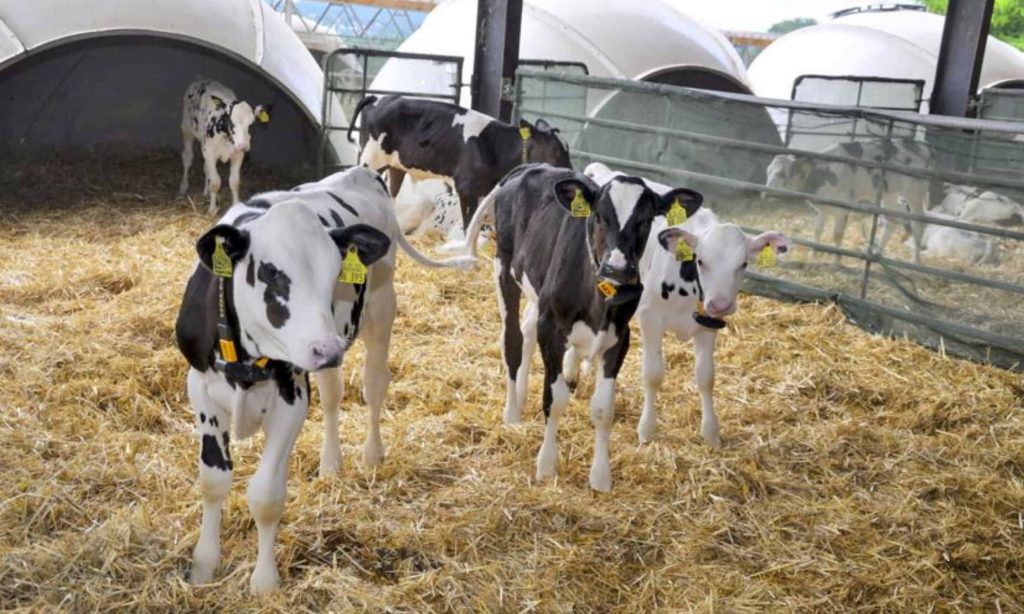Plus new laws being phased in to allow cows extra space could force dairy farmers who have recently built new freestall barns to reduce their cow numbers in the future.


Plus new laws being phased in to allow cows extra space could force dairy farmers who have recently built new freestall barns to reduce their cow numbers in the future.
The long-awaited Code of Practice for the Care and Handling of Dairy Cattle replaces its predecessor developed in 2009; the new code comes into effect April 1, 2024. It was designed, regulated and released by the National Farm Animal Care Council and the Dairy Farmers of Canada.
The code is regarded as a powerful tool for meeting increasing consumer, marketplace and societal expectations relative to farmed-animal welfare. Its development was led by an 18-person committee that includes participants from across Canada – including dairy farmers, animal-welfare and enforcement representatives, processors, researchers, veterinarians and government representatives.
Some aspects of the code will take effect in later years, giving farmers time to adjust to the new requirements. Any part of the code that falls under “requirements” means it must be implemented by the date mentioned. Anything labeled “recommendation” is a suggestion or good advice. Most of the latest updates to the code are aimed at improving the welfare of cows and calves, following trends that Europe has already implemented. It’s been quite a heavily guarded secret until now but the new code will provoke some questions during the next few months.
Two new general additions to the code are that all farm personnel must be aware of the code, and that branding of cattle is banned.
Pierre Lampron, president of the Dairy Farmers of Canada, said, “Canadian dairy farmers already follow some of the most stringent standards in the world, and the new Code of Practice will help them continue to provide the best in animal care while staying consistent with our industry’s history of continuous improvement.
“This commitment to quality and care means dairy farmers are always looking to stay ahead of the curve and improve their practices, reflecting the most recent science on the welfare of their animals.”
Main-housing requirements updated
The main updates released in the Code refer to new requirements in housing for cows and calves; they’re effective April 1, 2027.
• Cows must not be tethered continuously throughout their entire production cycle, calving to calving.
• Newly built barns must allow daily untethered freedom of movement and social interactions year-round, a hint that tiestall barns could be a thing of the past.
Having adequate space for calving in a barn is also essential, effective April 1, 2029.
• Cattle on all farms, including existing barns and for those being built, must calve in loose-housed maternity pens, yards or pastures that permit cows to turn around.
• Calving areas, whether for group or individual calving, must provide the cow and calf an area that is clean, safe, separated from the lactating herd and that provides enough space for the cow to be assisted.
Stocking densities of barns have also been identified as a new welfare requirement, increasing the space per cow when housed.
• The stocking density in barns must not exceed 1.2 cows per stall in freestall systems.
• Effective April 1, 2027, stocking density must not exceed 1.1 cows per stall.
• Effective April 1, 2031, stocking density must not normally exceed one cow per stall.
That means all barns, including those newly built, must have adequate space for the number of cows it houses. If it doesn’t then cow numbers must be reduced.
Resting areas in group pens must provide at least 9.3 square meters, or 100 square feet, per Holstein cow. The space requirements will be adjusted for smaller breeds.
Also new is that electric trainers must only be used when needed to train or retrain individual cattle. Electric trainers must be safe, secure, adjustable and positioned to enable normal eating, standing and lying behavior. Electrified crowd gates that herd cows to be milked, have been banned.
Calf housing addressed
The new code also addresses calf housing and welfare.
• Calves must not be tethered in indoor housing, and if outdoors can only be tethered via a collar in a calf hutch with access to an area outside the hutch.
• Producers raising calves individually must develop a plan to transition to pair or group-housing methods in consultation with a veterinarian or other qualified advisor.
• Effective April 1, 2031, calves that are healthy, thriving and compatible must be housed in pairs or groups by four weeks of age.
• Calves must be dehorned by two months of age; banding is banned as an acceptable method of dehorning.
Marie-Claude Bibeau, Canadian Minister of Agriculture and Agri-Food, said, “Canadian dairy farmers care about protecting the health and welfare of their farm animals. This updated Code of Practice will help them continue to enhance the care and handling of animals while boosting consumer confidence that our food system is meeting the highest standards.”
Legal notice about Intellectual Property in digital contents. All information contained in these pages that is NOT owned by eDairy News and is NOT considered “public domain” by legal regulations, are registered trademarks of their respective owners and recognized by our company as such. The publication on the eDairy News website is made for the purpose of gathering information, respecting the rules contained in the Berne Convention for the Protection of Literary and Artistic Works; in Law 11.723 and other applicable rules. Any claim arising from the information contained in the eDairy News website shall be subject to the jurisdiction of the Ordinary Courts of the First Judicial District of the Province of Córdoba, Argentina, with seat in the City of Córdoba, excluding any other jurisdiction, including the Federal.
1.
2.
3.
4.
5.
eDairy News Spanish
eDairy News PORTUGUESE
